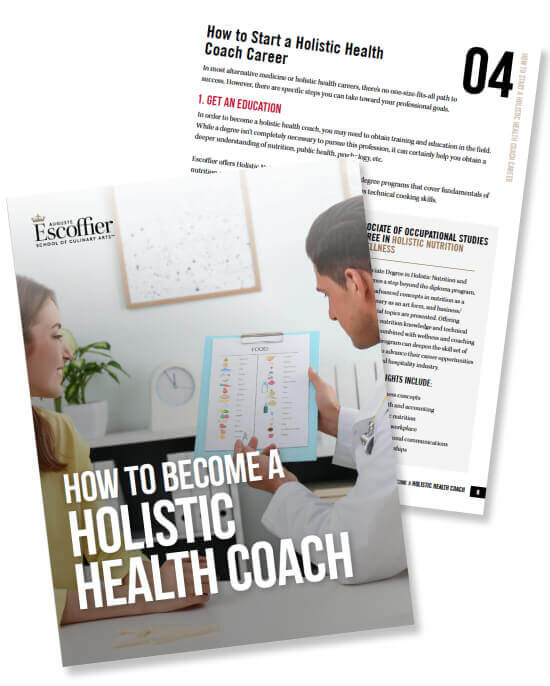If you’ve found yourself on a wellness journey, you’ve likely come across the term “holistic health.” Hearing this phrase may evoke images of Chinese medicine and acupuncture, or yogis contorting themselves into super-human shapes. And while energy medicine and movement can be part of holistic health and wellness, they may just be components of this well-rounded approach to health.
That’s because holistic health is a highly personalized specialty that brings an individual approach to full-human wellness.
What Is Holistic Health?
The word “holistic” refers to an entity’s parts and the way those parts connect to each other and to the whole. So, what is holistic health? This approach to well-being refers to a person’s physical, emotional, intellectual, social, and spiritual health, and how they unite to create a health-full human.
Holistic health practitioners focus on caring for the person’s whole being, often integrating more than one treatment approach. For example, they may make specific recommendations in the areas of:
- Nutrition and exercise for physical health
- Therapy or journaling for emotional health
- Volunteering or community involvement for social health
- Continuing education or reading for intellectual health
- Meditation or prayer for spiritual health
There may also be recommendations for interventions like massage, acupuncture, or reflexology. But since this practice emphasizes tailoring recommendations to individuals, no two plans for wellness will look exactly alike. This individualized approach speaks to how important it is for a practitioner to develop a deep connection with each of their patients.
“Health is a state of complete mental, social and physical well-being, not merely the absence of disease or infirmity.”*
1948 Constitution of the World Health Organization
Holistic Health vs. Modern Medicine
Part of the holistic approach to health is the prevention of disease or illness. Practitioners work to keep individuals’ minds, bodies, and spirits in equilibrium by honoring the connection between each element and providing support through diet, exercise, therapy, and more. They recognize that these various systems are interrelated and work in tandem—a physical ailment like digestive distress might be caused or exacerbated by issues with mental or emotional health, such as an unstable romantic relationship or financial worries.

In contrast, modern Western medicine generally seeks a specific physical cause for a specific physical ailment (or a mental cause for a mental ailment), and treats these issues accordingly. A doctor may treat an illness by recommending a surgical or medicinal cure, without also considering dietary or emotional health factors. However, holistic health is not in contradiction to “modern medicine.” It simply considers medicinal or surgical interventions to be one part of a larger, whole-body treatment plan, especially for acute and urgent illnesses or trauma.
Nutrition Plays a Key Role
Food is our primary source of energy and nutrients. It’s how we fuel our bodies on the cellular level, providing support for our organs and systems. When the body doesn’t get enough calories, macronutrients, and micronutrients, it operates under great stress to keep our systems functioning. Over time, that stress can present itself in the symptoms of illness. In extreme cases, the lack of certain nutrients can lead to acute illness or even death.
What Are Macronutrients and Micronutrients?
Macronutrients (sometimes shortened to macros) are carbohydrates, fats, and proteins—the nutrients we use in the largest amounts. An optimal balance of these three provides the body with the resources it needs to fuel our internal systems, support cell growth, and protect our organs.
Micronutrients are the vitamins and minerals we need in small (but important) quantities for immune function, bone health, and more. These include vitamin C, the various B vitamins, zinc, and magnesium, among many others.
Just as holistic health looks at the person as a whole, holistic nutrition involves a wider view of our food. While standard nutrition focuses more on the nutritional value of each food, holistic nutrition also considers factors like when we eat, our emotional connection to certain foods, what foods we combine together, and how our food is grown or raised. It often focuses on increasing whole foods in their original form and reducing processed foods in our diets for better nutrient absorption and gut health. It also encourages mindful eating—listening to the cues of our bodies to address cravings or to notice satiety.

In Auguste Escoffier School of Culinary Art’s holistic nutrition and wellness programs, students can complete coursework in special diets and nutritional cooking, plus non-food subjects like sleep, exercise, and stress management. This can help them to assess the whole person to create a tailored, unique nutritional plan for optimal health. Changes in diet may include focusing more on certain foods to resolve nutritional deficiencies, or eliminating foods that are causing unpleasant symptoms or physical or emotional discomfort.
The Job of a Holistic Health Practitioner
Holistic health practitioners or coaches work with clients to help them achieve their health and wellness goals. These goals could be a general increase in health, better performance in a sport or athletic endeavor, or even management of symptoms from an illness. For example, someone with an inflammatory disease like diabetes or rheumatoid arthritis may work with a holistic nutritionist to implement an anti-inflammatory diet to reduce their symptoms.
Types of holistic health practitioners include holistic nutritionists or coaches, osteopathic or naturopathic doctors and nurses, and functional medicine doctors. Those performing energy medicine or teaching practices like yoga are also considered holistic health practitioners. Education is a common part of their approach, with a focus on empowering their clients or patients to make choices that can fuel their whole person, no matter what stage of life they’re in. In the case of practitioners employing holistic nutrition, this means recommending smart diet options that will support the individual in the specific ways they may need.
Many holistic health practitioners work with clients on more than one aspect of their health, even if their clients come to them with concerns about nutrition or physical pain. Board-Certified Holistic Health Coach Julie Pelaez can speak to this.“Clients come to see me because they want to lose weight, or because they’re fatigued, or they’re dealing with some chronic illness, or their hormones are out of balance,” she says. “Then we end up having this deep philosophical, spiritual conversation. Body, mind, and spirit.”*
Entrepreneurship is common (although not required!) among holistic health practitioners. To help graduates run a successful practice, Escoffier’s holistic nutrition and wellness programs can include coursework in business planning and cost control, among other business topics.

Whole Foods for Whole Health
Holistic health treats the complex human triad of body, mind, and spirit as one inseparable whole. This whole-body approach can lead beyond the absence of illness to an abundance of wellness.
With its focus on whole foods, holistic health adherents should have at least a basic understanding of how to cook. With a degree or diploma in holistic nutrition and wellness, those focused on food as medicine can create delicious, health-giving meals for themselves and their loved ones.
Contact us to learn more about these exciting programs at Auguste Escoffier School of Culinary Arts and how they can help you achieve your goals.
To learn more about nutrition and sustainability, try these articles next:
- What Does a Nutrition Coach Do?
- What Is a Holistic Diet?
- Dietitian vs. Nutritionist: What is the Difference?
This article was originally published on December 3, 2021, and has since been updated.
*Information may not reflect every student’s experience. Results and outcomes may be based on several factors, such as geographical region or previous experience.



